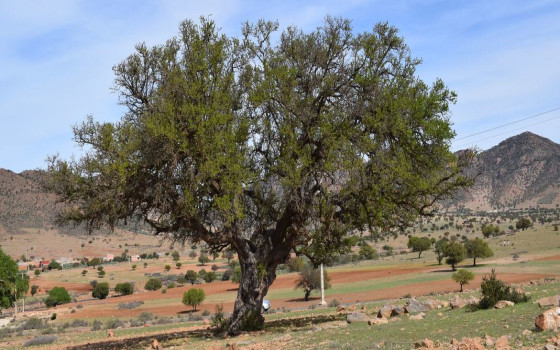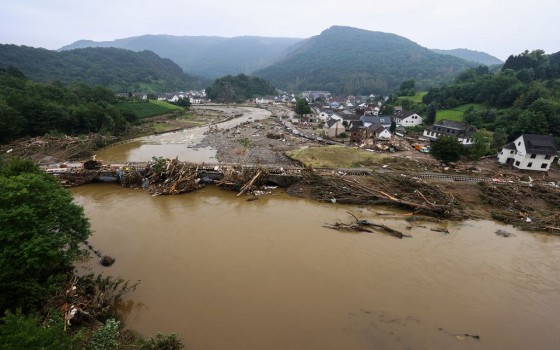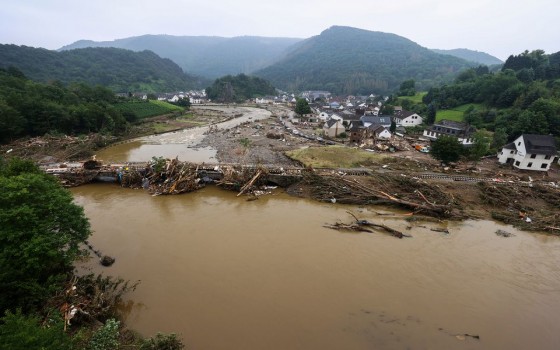
At the initiative of Morocco, the United Nations celebrates the International Day of the Argan Tree in support of development and biological diversity

- Europe and Arabs
- Thursday , 11 May 2023 15:36 PM GMT
New York - Brussels: Europe and the Arabs
The United Nations marked the third International Day of the Argan Tree by highlighting its importance to the rural communities that produce it, particularly rural women. According to what was stated in the daily bulletin of the United Nations, and we received a copy of it via e-mail, and it also stated, "The theme of this year's International Day is "Social and Economic Development and the Sustainability of the Argan Ecosystem", and aims to highlight the role of argan in promoting resilient societies, and contributing to food security and adaptation With climate change, this is in addition to empowering rural women by supporting and strengthening agricultural cooperatives and organizations.
About the international day
In March 2021, the General Assembly adopted a resolution declaring 10 May International Argan Day. The resolution was introduced by Morocco and jointly sponsored by a large number of Member States, in the context of the Kingdom's efforts to promote the Argan tree as an intangible cultural heritage of humanity and an inherited source of resilient and sustainable development.
In the concept note for the celebration event held at UN Headquarters, Morocco said it strives to preserve and develop community practices to sustainably manage the argan tree ecosystem, particularly in the context of severe drought stress and increasing climate change.
The Kingdom said it would like to share its knowledge with the world to build resilience and this symbolic ecosystem, which carries useful knowledge and experience to rebuild biodiversity, contribute to food security and restore a balanced link between humans and nature.
Multipurpose tree
The argan tree (Argania spinosa) is an endemic species of forest tree found in sub-Saharan Morocco, and grows in arid and semi-arid regions.
The argan tree is the defining species of the forest ecosystem rich in endemic plants, known as arganeri. This system is able to survive in a harsh environment with water scarcity, risk of erosion and poor soils.
This ecosystem is of exceptional beauty and is important not only for biodiversity conservation, but also for research and socio-economic development, due to its impact on forestry, agriculture and livestock.
World famous argan oil is extracted from the seeds and has multiple uses, particularly in traditional and complementary medicine and in the culinary and cosmetic industries. Mostly used as an oil, its anti-aging properties are popular in cosmetics, and its demand in the food sector has made it the most expensive edible oil in the world.
pillar of sustainable development
The argan tree supports income generation, increases resilience and improves climate adaptation, and plays a very important role in achieving the three dimensions of sustainable development - economic, social and environmental.
The sustainable argan production sector contributes to the economic empowerment and financial inclusion of local communities, especially women living in rural areas. Cooperatives also play an essential role in enhancing local employment opportunities, and can play an important role in contributing to food security and poverty eradication.
The argan tree has been a mainstay for centuries for indigenous rural Berber and Arab communities, who have developed a specific culture and identity, sharing their traditional knowledge and skills through informal education, particularly the unique knowledge associated with the work of women in the traditional production of argan oil.
It is noteworthy that the unique area in which argan trees are grown has been appreciated and protected by various international entities. In 1988, the United Nations Educational, Scientific and Cultural Organization (UNESCO) designated the production area as a protected area. All practices and know-how related to argan trees were inscribed on the Representative List of the Intangible Cultural Heritage of Humanity in 2014.
Moreover, in December 2018, the Food and Agriculture Organization recognized the argan-based agro-pastoral system in Morocco as an Agricultural Heritage System of Global Importance.












No Comments Found